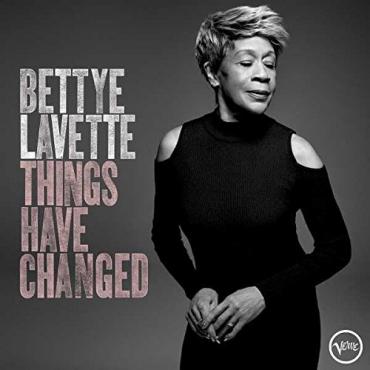Bettye LaVette Recreates Dylan

When Bettye LaVette opens her mouth, you can see down into her soul. She’s willing to allow you that glimpse, but be careful how you describe what you witness. “I am a rhythm and blues singer,” she says to those who would label her a soul singer. “That was what they called it when I first started singing. You can’t just up and change it, that’s like changing my name to Ida or something.” She goes on to explain that to her, a soul singer is anyone who sings soulfully and with all their soul. But that description comes with a caveat. “That could be anybody. Just because a whole bunch of white people probably mistook- we used to say, during the ‘60s, ‘Oh, that’s a soulful MF.’ But we never said, ‘He’s a soul singer.’ All we would say is ‘He’s soulful.’”
That exchange pretty much sums up LaVette’s approach to life and the music business, meeting challenges head-on, battering her way through with pride and perseverance. It’s been a tough trip for the 72 year old singer, who should have been famous since 1972 when she recorded Child Of the Seventies. But that record got shelved for 30 years, and only in recent years has LaVette’s glorious, gritty, soulful voice gotten the exposure she deserved, bringing Pete Townsend to tears with her rendition of his composition “Love Rein O’er Me” at the ’08 Kennedy Center Honors, enthralling the audience at Obama’s inauragation a month later with her cover of Sam Cooke’s “A Change Is Gonna Come.”
She’s been battling her way back from obscurity with gems like ’05’s I’ve Got My Own Hell To Raise, covering tunes including Dolly Parton’s “Little Sparrow” and Sinead O’Connor’s “I Do Not Want What I Haven’t Got” and 2010’s magnificent collection of covers, Interpretations: The British Rock Songbook. But LaVette doesn’t do covers – they’re her interpretations, a fact she makes abundantly clear to anybody with a set of ears. “They wrote it the way they heard it, and that was the way they felt it and that was the way they presented it,” she says. “ I didn’t do the songs to change them, I chose the songs because I hear myself singing them, and not whoever else was singing them.”
She can even take a song like Ringo Starr’s “It Don’t Come Easy” and make it bleed, leaving puddles of cast off pain onstage.
Her latest project, interpreting the songs of Bob Dylan, is her first major label release in 30 years. Produced by Steve Jordan and featuring Trombone Shorty and and Keith Richards on a couple of cuts, LaVette once again demonstrates her soulful r&b prowess.
In her hands the tunes are unrecognizable. “It Ain’t Me Babe” is transformed into a cabaret torch song, but LaVette make it abundantly clear that she’ll use her torch to set your ass on fire if you’re fool enough to mess with her.
Even Bob’s signature tune is fair game, LaVette getting her inner Mavis on for a run at “The Times They Are A- Changin,’” a funky gospel strut propelled by house band guitarist Larry Campbell ( Levon Helm.)
Keith Richards takes over guitar duties for “Political World,” dropping in dreamy curliques around Lavette’s heartbroken intro about a political world where love ain’t got no place and crime ain’t go no face, before gliding into Meters- worthty funk for the rest of the current events travelogue.
“What Was It You Wanted” gets a Shaft-era makover, Trombone Shorty dropping in midway for a brassy Fred Wesley and the JB’s mellow fonk interlude.
“Do Right To Me Baby( Do Unto Others )” crackles with righteous indignation like Led Zepppelin having a come-to-Jeeezus moment while LaVette cries out in pain like a crusty copy of Plant getting nailed to a cross.
It’s transformative, inspiring music from an artist who’s time has come, time and again. This time, Betty LaVette’s time is right now.




